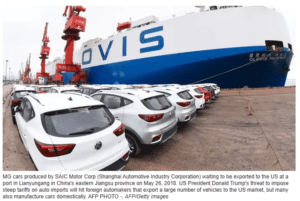How Industry and Conventional Lenders Look at Independent Agencies
This post is part of a series sponsored by InsurBanc.
Independent agency principals seek loans for a variety of reasons, such as:
Perpetuation or acquisition.
Partner buyout.
Producer development.
Technology or equipment.
Agency expansion.
Working capital.
Purchase real estate for agency occupied office space.
When agency owners seek funding, they’re likely to encounter two types of lenders:
Conventional bankers that typically lend to businesses with tangible assets in industries such as manufacturing, construction, real estate, retail, wholesale, etc.
Industry bankers that specialize in lending to independent insurance agencies and understand the enterprise value of an agency’s book of business.
Conventional banks can offer full-service banking to agencies, including accepting deposits and originating commercial loans. More often than not, conventional banks are unfamiliar with the cash management needs of independent agencies, and, when it comes to offering financing, they may have difficulty establishing agency value to lend against.
By contrast, an industry lender brings a specialist approach to the independent agency community. The industry lender understands the independent agency’s unique needs and provides customized solutions beyond just capital. This can include guidance to agency principals and leaders to seek out and work with partners who understand their business. For example, at InsurBanc we advise agency owners to surround themselves with strategic partners who understand their business — including lenders, accountants and attorneys. There is no replacement for having relationships with knowledgeable professionals who understand your agency’s operations.
All lenders need to know what collateral is available to secure their loan. Conventional lenders deal primarily with brick-and-mortar businesses with hard assets to secure a loan. They often struggle in lending to an independent agency because the collateral lies off balance sheet in the intangible value of the book of business. Because of this, conventional lenders might view agency loans as riskier and, therefore, charge a higher interest rate or require other credit enhancements — if they are even able to lend at all.
Conversely, insurance industry lenders will be knowledgeable of:
Hard versus soft market conditions.
How an agency generates revenue.
How an agency’s financial needs differ from those of other businesses.
Drivers of agency value.
What’s in a production or a carrier experience report.
Cash management patterns in an agency.
The “Main Street” community focus many agencies have.
Also distinct is that insurance industry lenders understand that agencies’ books of business are diverse, and could be written in personal lines, commercial lines and/or life and health clients, with numerous regional and national carriers, servicing direct bill and agency bill clients and receiving profit sharing or contingency income based on performance.
Agents need a banking partner that understands their business and listens to their concerns. When agencies consider a lender, it’s fair to expect the lender to not merely provide a financial transaction. A banker should also provide a long-term business relationship — one in which the banker understands the independent agency business and is willing to grow with the agencies that it serves.
Topics
Agencies
Interested in Agencies?
Get automatic alerts for this topic.






